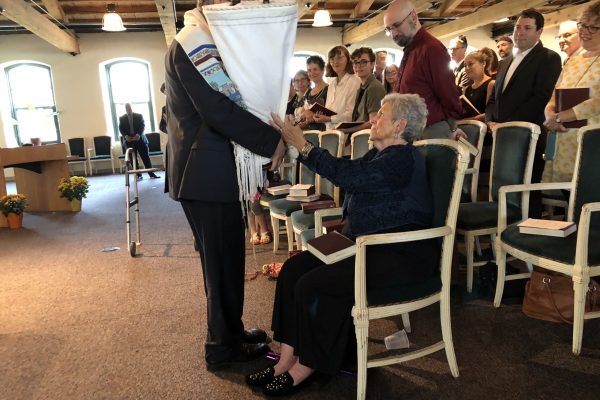The nature of Jewish divorce is complex, and the contemporary Jewish community is diverse. It is strongly recommended that people considering a Jewish divorce consult with a rabbi. Meeting with a rabbi can provide an opportunity for exploring the route or routes that best serve the needs of an individual or a couple at a time of divorce.
Since Reconstructionist and Reform Judaism now offer options for Jewish divorce that do not align with the halakhic norms of a getA writ of divorce. Traditionally, only a man can grant his wife a get. Liberal Jews have amended this tradition, making divorce more egalitarian., the term “Jewish divorce” is often used to refer to a non-halakhic spiritual-religious process and ritual for marking the end of a marriage.
At this moment in Jewish history, questions regarding ishut (“personal status”) are fluid. The different streams of contemporary Jewish life do not always agree on issues of ishut, and insofar as Reconstructionist Judaism emphasizes belonging to the Jewish people (and not just to the Reconstructionist community), it is important to have an understanding of the spectrum of opinions and options.
Reconstructionist Judaism has tried to maintain Jewish divorce as a meaningful way of marking this transition in a Jewish context. The Reconstructionist approach seeks to elevate the pastoral possibilities of Jewish divorce, focusing on the emotional, spiritual and personal dimensions rather than on the technical processes of halakha.
The majority of Reconstructionist rabbis strongly encourage a Jewish divorce in many circumstances, most clearly when such a procedure can take place in proximity to a final decree of civil divorce and offer support and meaning. Reconstructionist rabbis differ, however, as to whether they require a Jewish divorce (traditional or otherwise) as a condition for officiating at a subsequent marriage.
Reconstructionist Jewish divorce (as adopted by the Reconstructionist Rabbinical Association in 1994) offers an egalitarian procedure: optimally, both partners execute a Reconstructionist Jewish divorce and divorce each other. When one partner refuses to participate, or cannot be located, the rabbi can proceed with a single-initiated Reconstructionist Jewish divorce.
Reconstructionist Judaism affirms equal access to Jewish marriage for same-sex couples, and as a correlative, acknowledges the importance of making Reconstructionist Jewish divorce available to these couples. With the number of states where same-sex marriage is now legal increasing, and with some same-sex couples having chosen ceremonies of affirmation/partnership (whether out of choice or necessity), it is important to affirm that the meaningfulness of a Jewish divorce applies equally in situations where same-sex marriages end in divorce.
The Reconstructionist movement has not yet developed a religious divorce procedure or document for interfaith couples in which one of the partners is Jewish. However, it would be both appropriate and meaningful for rabbis to adapt current Reconstructionist processes and documents or to create their own, in order to reflect the interfaith reality of a couple that wants to mark their divorce in a spiritually meaningful way. Since many interfaith marriages begin with a ceremony presided over by a rabbi, ending such marriages within a Jewish framework may be meaningful as well.
Because Jewish divorce is a complex ritual in itself made more so by the divergent approaches taken by contemporary Jewish denominations in the context of the wider community of the Jewish people, it is important to consult with a Reconstructionist rabbi about Reconstructionist Jewish divorce procedures. A rabbi will explain the many issues involved with Jewish divorce, as well as the ways in which it could be a helpful and meaningful experience. The rabbi will explain the halakhic get process as well as progressive Jewish forms of divorce, and the conditions and consequences of each. The rabbi will explain the issues and answer questions so that the couple or individual can make an informed decision.
For more information on Reconstructionist options for Jewish divorce contact the Reconstructionist Rabbinical Association (RRA) at 215 576 5210 or info@therra.org.











